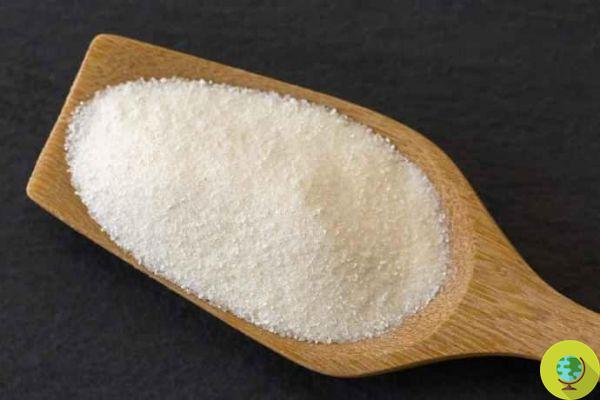
Artificial sweeteners and zero-calorie drinks cause diabetes and obesity like white sugar.
Don't store avocado like this: it's dangerousUsed extensively in diet or zero-calorie drinks and other products such as food additives, artificial sweeteners continue to make their way into the dock. If sugar consumed in large quantities increases the risk of a range of health problems, artificial sweeteners can have similar consequences, but through entirely different biochemical pathways.
This is the conclusion reached by a new study from Wisconsin and Marquette University, which examines the biochemical changes in the body after the consumption of sugar or sugar substitutes and the effects on vascular health.
What emerges is that replacing refined sugar with artificial sweeteners does not bring any health benefits, indeed, it could be risky. Artificial sweeteners do not help with weight loss, as well as increase the risk of obesity and diabetes.
Already accused of being more harmful than sugar, in short, and of increasing the risk of developing type 2 diabetes, artificial sweeteners are now also the main culprits for the increase in obesity cases.
“Despite the addition of these non-calorie artificial sweeteners to daily diets, there has been a dramatic increase in obesity and diabetes,” explains Brian Hoffmann, one of the lead authors of the research.
The one conducted by the researchers is one of the most in-depth explorations to date biochemical changes products from artificial sweeteners in the body. To achieve this level of detail, the researchers used a technique called impartial high-throughput metabolomics, which refers to studying the products of metabolism within cells.
Focusing on two sugars, glucose and fructose, and on zero-calorie sweeteners, such as aspartame and acesulfame potassium, they wanted to understand how and to what extent sugar and sweeteners affect the lining of blood vessels.
Well, experiments have shown that both sugar and artificial sweeteners impair the functioning of blood vessels. But these problems have been achieved in different ways: "In our studies, both sugar and artificial sweeteners appear to show negative effects related to obesity and diabetes, albeit through very different mechanisms from each other", explain the authors, who conclude that the observed vascular changes “may be important during the onset and progression of diabetes and obesity”.
Basically, in moderate quantities our body would be able to handle sugars, but when the system is overloaded for a long period of time this mechanism breaks down and replacing these sugars with non-calorie artificial sweeteners leads to negative changes in the metabolism of lipids and energy.
So sugar or artificial sweeteners? Neither, because both have negative health effects, but Hoffmann concludes: “Stopping using artificial sweeteners is not the simple key to solving the health consequences of obesity and diabetes. If these foreign substances are consumed chronically, the risk of adverse effects increases. As with other food components, moderation is the key if it is difficult to completely eliminate something from our diet ”.
Alternatively? Here are 10 good solutions beyond white sugar.
Read also:
- Stevia: the whole truth about natural sweetener
- Natural sweeteners: maple syrup, purifying and energizing
Germana Carillo


























